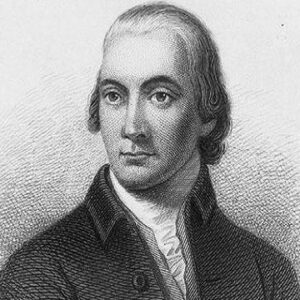Lyman Hall was a doctor and politician from the United States. He is best known as a signer of the Declaration of Independence for the state of Georgia. He was a clergyman and worked as a pastor for a few years after he graduated. However, his real strength was his ability to lead, which influenced most people and led to him becoming an ordained Congregational minister. Later in his life, he went to school to become a doctor and worked as one for a while. He then moved to Georgia, which was the center of a political revolution at the time. He went through a lot of hard times and struggles to get independence for his people. In the end, he was one of the three delegates from Georgia who signed the Declaration of Independence as part of the Congress. After a few years of being on his own, he was also elected Governor of Georgia to help rebuild the country. Hall County is named after him by the state of Georgia. People in the state remember him as one of the great revolutionaries who always put freedom and people before everything else.
Childhood and Adolescence
He was born to John Hall and Mary Street on April 12, 1724, in Wallingford, New Haven, Connecticut. He was one of his parents’ eight children.
He graduated from Yale College in 1747, beginning a legacy that his seven siblings would continue.
Rev. Samuel Street, his mother’s father, was the town’s first church minister. He began studying theology under his supervision and also served as a preacher for various church events.
His pastorate was terminated by the Consociation after complaints against his moral character were purportedly proven. He was later restored because the community believed in his repentance.
Lyman Hall’s Career
He began studying medicine while providing services to the church for a short time. He earned his Doctor of Medicine degree and began practicing medicine in his hometown.
He relocated to South Carolina in 1752 because of a personal passion and greater opportunities for a medical career. In Dorchester, he established himself as a physician among the Congregationalist migrants. He was warmly welcomed and accepted by the community, and it was clear from their reaction that he had gained their trust by expressing his strong opinions.
After learning of substantial land resources in Georgia, the inhabitants of Dorchester Society began migrating and relocating to Midway District, presently in Liberty County, Georgia, in 1757. During the shift, he accompanied them and became the proprietor of a small plantation a few miles from the city.
He worked as a physician at Sunbury, a newly founded town in St. John’s Parish, during his tenure there. His hands were full as a physician, as the area was plagued by bilious fever in the summer and pleurisies in the winter. He was able to keep the illness under control and prevent disease in the majority of the population, earning him the respect of the community.
His courtesy and helpful demeanor were greatly appreciated, and he quickly rose to become one of the town’s most respected figures. He took an active interest in public gatherings and cherished his compatriots’ trust in him.
When the Revolutionary War loomed in the 1770s, he was elected as a delegate from his city. In 1775, he attended the Second Continental Congress on behalf of St. John’s Parish.
In 1776, he organized a Provincial Congress and was appointed as a delegate from Georgia, along with Button Gwinnett and George Walton, on August 2, the same year he signed the Declaration of Independence.
He was appointed Governor of Georgia after the Revolution in order to rehabilitate the city. He served in the assembly and as a judge after his one-year term as governor.
His Major Projects
He was one of the first citizens of Sunbury, a newly established city in Georgia’s province, and the first person to represent Georgia in the Second Continental Congress in 1775.
He is best noted for being one of the three appointed delegates from Georgia who signed the Declaration of Independence on August 2, 1776.
He became the first Governor of the independent state of Georgia in January 1783.
He recommended providing state land grants for the construction of institutions, which led to the foundation of the modern university system.
Personal History and Legacy
He married Abigail Burr on May 20, 1752, the daughter of Thaddeus Burr and Abigail Sturges of Fairfield, Connecticut, but she died a year later.
He married Mary Osborne, daughter of Rev. Samuel, and Hannah Osborne of Fairfield, Connecticut, in 1757. They had a son, John, who died childlessly, and this remarkable personality has no direct descendants.
On October 19, 1790, he died on a modest property in Burke County, Georgia, where he had relocated the previous year. He is still known as a principled man with a strong mind and a strong sense of patriotism.
In Georgia, he had a county named after him, Hall County.
He was recognized in Connecticut for having a high school named after him. Several schools in Georgia’s Hall and Liberty counties are named after him.
Estimated Net worth
Lyman Hall’s estimated net worth is $2 million, and he makes most of his money from being a politician. We don’t know enough about Lyman Hall’s cars or his way of life.


